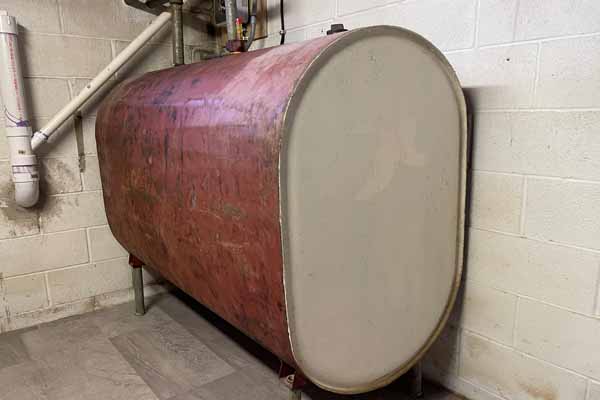
How to Reduce Your Heating Oil Consumption in 2025 Without Sacrificing Comfort
As 2025 approaches, homeowners are more focused than ever on energy efficiency and sustainability. Rising energy costs, combined with growing environmental concerns, have many people wondering how they can reduce their heating oil consumption without sacrificing the warmth and comfort they rely on throughout the colder months. Fortunately, achieving both is possible with a few simple, practical changes to how you manage your quality domestic heating oil shropshire and home environment.
In this blog, we’ll explore several effective strategies to lower your heating oil usage while maintaining the cosy atmosphere you enjoy in your home.
1. Upgrade to a High-Efficiency Oil Burner
One of the most effective ways to reduce your heating oil consumption is by upgrading to a high-efficiency oil burner. Modern burners are designed to extract more heat from the same amount of fuel, meaning you’ll need less oil to maintain the same level of warmth in your home.
Why it works:
High-efficiency oil burners can operate at 85% efficiency or higher, compared to older systems that may only be 70-80% efficient. This means that more of the energy in the oil is converted into heat, reducing waste and lowering your overall fuel consumption.
Tip: If your burner is over 10-15 years old, investing in an upgrade could pay off quickly by cutting your heating oil usage and reducing maintenance costs.
2. Use a Programmable or Smart Thermostat
A programmable or smart thermostat can help you regulate your home’s temperature more effectively, reducing energy waste without sacrificing comfort. These devices allow you to set specific temperature schedules for different times of the day, ensuring that your heating system isn’t running when it’s not needed.
How it works:
For example, you can set the temperature to lower when you’re not home and have it warm up before you return. Smart thermostats even allow you to control your heating remotely via a mobile app, giving you greater flexibility in managing your home’s temperature.
Tip: Set your thermostat to 68°F during the day when you’re home, and lower it by a few degrees at night or when you’re away. Even a small adjustment can lead to significant savings over time.
3. Seal Drafts and Improve Insulation

Your heating oil system can only be as efficient as the insulation and sealing in your home. Poor insulation and air leaks can cause warm air to escape, forcing your heating system to work overtime to maintain a comfortable temperature. By sealing drafts and improving your home’s insulation, you can prevent heat loss and reduce the amount of oil needed to keep your home warm.
What to do:
- Seal windows and doors: Check for gaps around windows and doors, especially older models, and seal them with weather stripping or caulk.
- Insulate your attic: Ensure your attic has adequate insulation, as up to 25% of heat loss occurs through the roof.
- Install door sweeps: Gaps at the bottom of doors can allow cold air to enter. Install door sweeps to prevent this.
Tip: Insulating your walls and floors, as well as upgrading to double-glazed windows, can have a significant impact on reducing heat loss over time.
4. Maintain Your Heating Oil System
Regular maintenance of your heating oil system is crucial to ensuring that it runs as efficiently as possible. A well-maintained heating system uses less oil and heats your home more effectively. Scheduling regular service checks and cleanings can prevent issues that might cause your system to work harder than it needs to.
What to do:
- Clean the burner: Soot and debris can accumulate in the burner, causing it to run inefficiently. A cleaning ensures that your system is burning oil properly.
- Check the oil filter: A clogged oil filter can reduce the efficiency of your system. Replacing or cleaning the filter as needed will help maintain smooth operation.
- Inspect the oil tank: Look for any signs of leakage or rust that could cause fuel waste. Keeping your oil tank in good condition ensures it’s delivering fuel effectively.
Tip: Schedule an annual service with a licensed technician before the heating season begins to ensure everything is in peak condition.
5. Use Zone Heating
If you have a large home, you might find it beneficial to adopt a zone heating approach. Instead of heating every room of your house, zone heating allows you to target specific areas where you spend the most time. This can significantly reduce the amount of oil used and help you save on heating costs.
How it works:
Zone heating can be achieved through a combination of programmable thermostats, space heaters, or even by closing vents in unused rooms. By heating only the rooms you need, you can lower the overall consumption of heating oil while maintaining comfort in the areas you use the most.
Tip: Invest in space heaters for rooms that are used infrequently, so you don’t have to heat the entire home when it’s unnecessary.
6. Consider Upgrading to a More Efficient Oil Tank
Over time, your oil tank can become less efficient due to corrosion, rust, or sediment buildup. An old, poorly maintained tank may cause your heating system to burn more oil to generate heat. Upgrading to a newer, more efficient tank can help reduce oil consumption and improve your system’s overall performance.
What to do:
Consider switching to a double-walled tank, which provides added durability and prevents leaks. These tanks are more resistant to corrosion and last longer, making them a more efficient option in the long run.
Tip: If your tank is more than 15-20 years old, it might be worth replacing it to avoid inefficiencies and potential leaks.
7. Optimise Your Heating Oil Delivery Schedule
Finally, keeping an eye on your oil delivery schedule can also help manage oil consumption. By ordering oil before your tank runs too low, you avoid the risk of running out of oil, which could leave your heating system inefficient until a refill is delivered.
What to do:
Some heating oil suppliers offer automatic delivery services based on your usage patterns. These services can ensure you always have enough oil to maintain a comfortable temperature in your home, without ever running low and experiencing inefficient burns.
Tip: During the colder months, try to schedule oil deliveries regularly to keep your tank at an optimal level and avoid heating inefficiencies.
Conclusion
Reducing your heating oil consumption in 2025 doesn’t mean sacrificing comfort. By adopting these simple and cost-effective strategies, you can keep your home warm and cozy while minimising energy use and reducing your heating costs. Whether it’s upgrading your oil burner, sealing drafts, or maintaining your system regularly, every step you take will help you save money, energy, and contribute to a more sustainable future.
